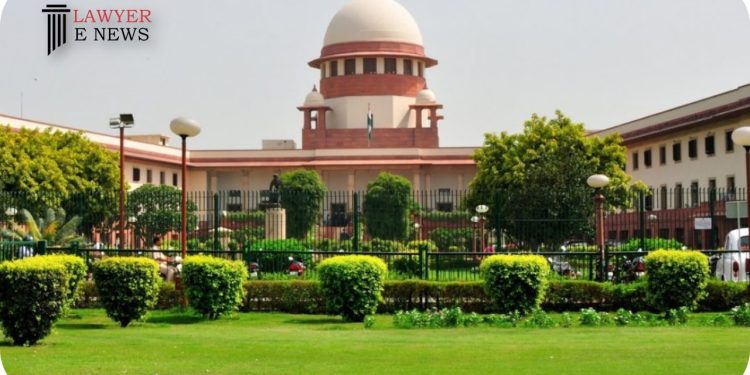Supreme Court Holds Taxable Service in Works Contract Cannot Include Goods Value for Service Tax

The Supreme Court has ruled that an assessee who is liable to pay service tax under works contract service cannot include the value of goods in the taxable service for the purpose of service tax. The Court held that the valuation of works contract service must be determined as per Rule 2A of the Service Tax (Determination of Value) Rules, 2006 or the Composition Scheme provided under the Works Contract (Composition Scheme for Payment of Service Tax) Rules, 2007. The Court clarified that the Composition Scheme and Rule 2A are options for the assessee, but the total contract value cannot be considered for service tax purposes, and CENVAT Credit is not admissible on the goods portion of the works contract.
In a recent judgment, the Supreme Court has resolved the issue of the valuation of works contract service for the purpose of service tax. The Court observed that works contract service involves a combination of goods and services, and it is important to determine the value of the service portion separately from the value of goods involved in the contract.
The Court referred to the earlier decisions in Larsen and Toubro and Gannon Dunkerly, which established that the value of a works contract should be determined by deducting the charges for labor, sub-contractor services, planning and designing fees, machinery and tools, consumables, establishment costs, and profit attributable to the supply of labor and services.
The Court noted that Rule 2A of the Service Tax (Determination of Value) Rules, 2006, introduced from June 1, 2007, specifically identified the service elements of a works contract and provided for the determination of the value of the service portion. The value of the goods involved in the execution of the works contract should be excluded from the determination of the service tax.
The Court further emphasized that the Composition Scheme, introduced through the Works Contract (Composition Scheme for Payment of Service Tax) Rules, 2007, provided an option for an assessee to discharge the service tax liability at a specified rate by paying a percentage of the gross amount charged for the works contract. However, under the Composition Scheme, CENVAT Credit on input goods is not admissible.
The Court held that the assessee cannot choose to include the goods value in the taxable service and avail CENVAT Credit on the entire contract amount. The provisions of Rule 2A and the Composition Scheme are subject to the provisions of Section 67 of the Finance Act, 1994. Therefore, the value of the service portion must be determined as per Rule 2A, and the assessee has to pay service tax on the service element only.
The Court set aside the decision of the CESTAT, which had allowed the assessee to include the value of goods in the taxable service and claim CENVAT Credit on the entire contract amount. The matter was remanded back to the CESTAT to recompute the demands in accordance with Rule 2A and to decide the issue of limitation.
Date: May 2, 2023
CC and CE and ST, NOIDA vs M/s Interarch Building Products Pvt. Ltd.






